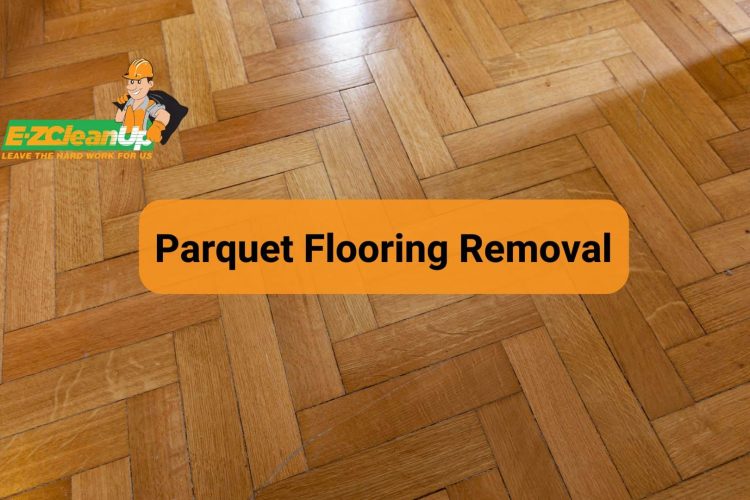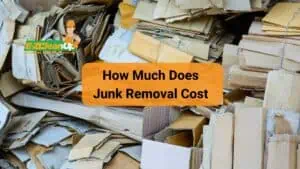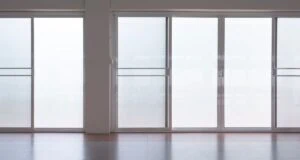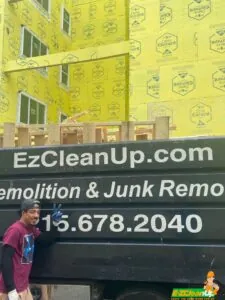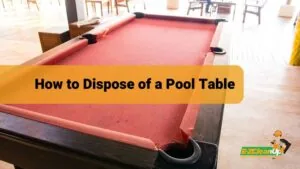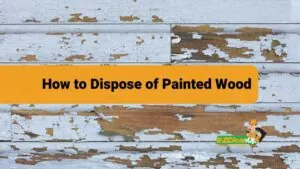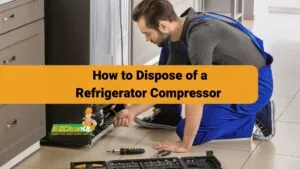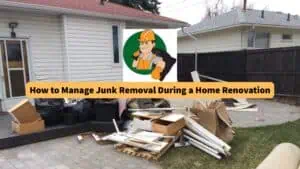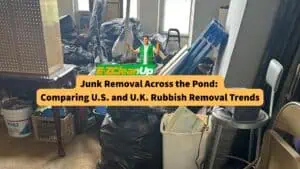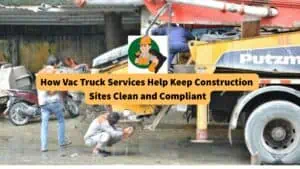Removing parquet flooring requires gathering specific tools, preparing the area, and employing tailored techniques for plywood and concrete subfloors. Post-removal, clean the subfloor thoroughly and responsibly dispose of waste. Choose new flooring based on durability and aesthetics.
Wanna learn the details about parquet flooring removal? Read our guide below.
Prepare Tools and Materials
When preparing to remove parquet flooring, it’s crucial to have the right tools and materials to ensure a safe and efficient process. To begin, gather the following items:
- Adhesive remover to help loosen the flooring from the subfloor
- Safety equipment, such as gloves, knee pads, and safety glasses, to protect yourself during the removal
- A variety of scrapers and a heat gun might be necessary, especially for flooring adhered to plywood or concrete subfloors
- A floor buffer with a scraping attachment can also be highly effective for removing tougher adhesives or for larger areas
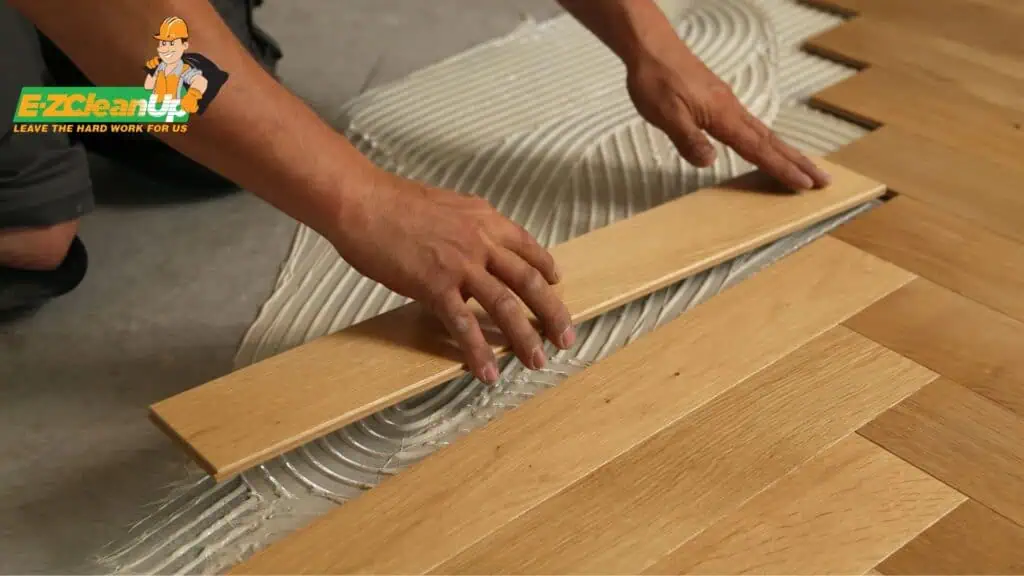
Preparing the Work Area
Before starting, make sure that you remove all furniture and obstacles to ensure a wide working space. Securing a clean and open area will make it easier to maneuver and prevent any potential damage to your property.
See to it that the room is well-ventilated, especially if you’re using chemical adhesive removers. Dust and fume control are important to maintaining a safe working environment.
Moreover, before starting the removal, inspect the type of subfloor you have (plywood or concrete), as this will dictate the best removal approach.
For plywood, you may need to use a heat gun to soften adhesives; for concrete, more forceful methods like a vibrating machine might be necessary.
Removing Parquet Flooring from Different Subfloors
Here are some techniques to follow when removing parquet flooring, depending on the subfloor. This is to make sure that the parquet flooring is removed efficiently and is ready for any subsequent flooring installations.
Plywood Subfloors
Before starting, ensure you have a heat gun, a pry bar, and other necessary safety gear like goggles and gloves. These tools are crucial for loosening and removing the flooring without causing harm to yourself or the subfloor.
Begin by gently heating the edges of the parquet tiles with the heat gun. The heat helps soften the adhesive. This makes it easier to pry up the tiles. It’s important to keep the heat gun at a safe distance to prevent damage to the plywood and reduce the risk of fire
Once the adhesive is softened, use the pry bar to carefully lift the tiles. Start from the edges and gradually work your way inward. This method helps maintain the integrity of the plywood underneath by minimizing breakage and tearing of the wood fibers.
After removing the tiles, there may be residual adhesive on the plywood. Use a scraper to remove as much adhesive as possible, and then clean the surface with an appropriate cleaning solution to prepare it for new flooring installation.
Concrete Subfloors
When removing parquet flooring from concrete subfloors, the approach often involves the use of heavy-duty equipment due to the durable nature of the adhesive and materials involved. These include tools such as a pry bar, a vibrating machine or an electric jackhammer, and a tile scraping machine.
Step-by-Step Removal Process
Here’s how to remove parquet flooring from concrete subfloors:
- Starting Point: Identify and access a starting point by finding a gap between the tiles or at the edge of the flooring. This initial access point is crucial for effectively leveraging the subsequent steps.
- Vibrating Machine or Jackhammer: Once you’ve created an entry point, use a vibrating machine or an electric jackhammer set at the appropriate height relative to the subfloor. These tools are designed to deliver high-frequency vibrations that efficiently break the bond between the tile and the concrete without damaging the subfloor itself.
- Tile Removal: After loosening the tiles, employ a tile scraping machine or a solid manual scraper to remove them from the concrete. This step might require repetitive adjustments and repositioning of the machinery to make sure all tiles are detached.
- Cleaning and Preparing the Subfloor: Following tile removal, the subfloor will likely have residues of adhesive or small debris. It’s essential to thoroughly clean the area. Use additional tools or chemical solvents as needed to prepare the subfloor for any new flooring installation.
Safety and Efficiency
Throughout the process, maintain strict adherence to safety protocols, especially in ventilation and protective gear usage. This is to mitigate any health risks associated with dust and debris.
Additionally, removing baseboards and clearing the area of any movable objects beforehand can speed up the operation and reduce cleanup time post-removal.
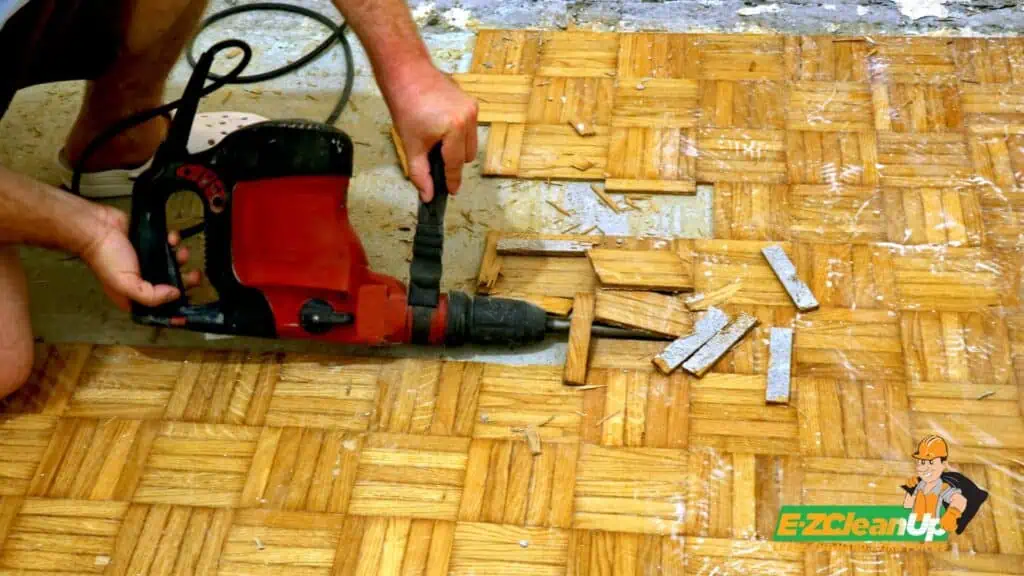
Special Considerations and Tips
Here are some techniques to enhance the efficiency and safety of your flooring removal project:
Addressing Stubborn Adhesives
When removing parquet flooring, dealing with stubborn adhesives is a common challenge. We asked Joe Caban from GoFlooring about the complexity of removing parquet that has been glued. According to him, “Removing glued parquet flooring can be quite challenging due to the strong adhesive bonds. It often requires specialized tools and techniques to avoid damaging the subfloor. Patience and precision are key to ensuring a clean removal and preparing the surface for new flooring.”
For effective removal, you can consider reapplying chemical solutions such as citrus-based solvents or commercial adhesive removers. These products can soften tough adhesives and make them easier to scrape away.
Apply the solution directly to the adhesive. Allow it to sit for several minutes, and then use a putty knife or scraper to remove the softened material.
Dust Management Techniques
Use dust reduction systems, such as a dust extractor connected to your power tools, to minimize airborne particles. For manual removal methods, regularly clean the area with a vacuum equipped with a HEPA filter.
Additionally, using wet methods for cutting or scraping can help suppress dust generation. Always wear safety gear such as masks and goggles to protect against dust inhalation and ensure the space is well-ventilated.
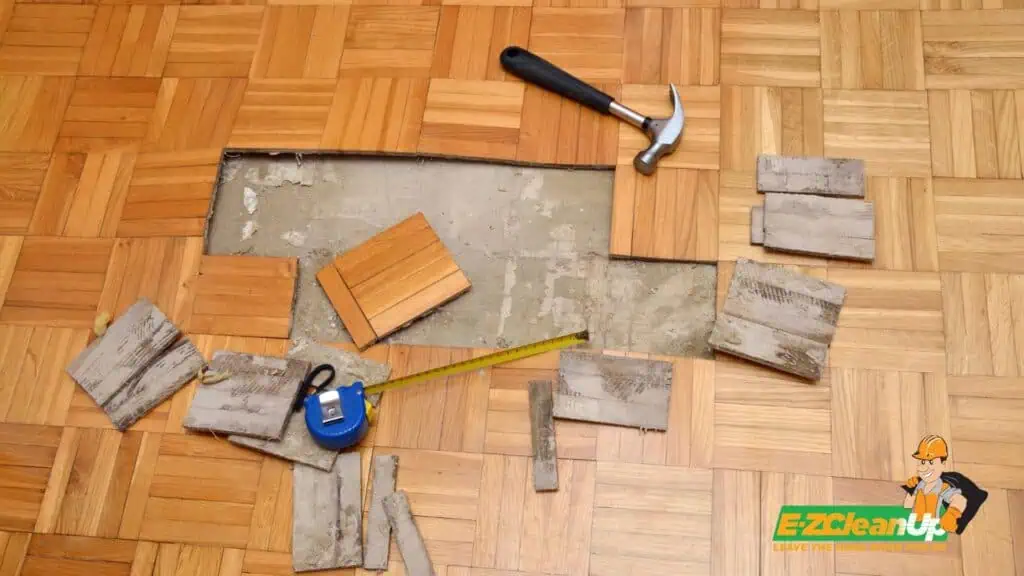
Post-Removal Cleanup and Disposal
After removing parquet flooring, make sure to thoroughly clean the subfloor to remove any debris and adhesive residues before installing new flooring. Start by sweeping or vacuuming to remove loose particles.
For any adhesive residues, using a scraper or applying a commercial adhesive remover can be effective. Make sure the floor is completely dry. Clean it by wiping it down with a damp cloth, followed by a dry one to absorb any residual moisture. This meticulous cleaning helps prevent issues with new flooring installations.
Disposing of Parquet Materials
Parquet materials should be treated as construction waste and must not be burned due to the potential release of harmful chemicals from adhesives and sealants used in the flooring. Instead, consider taking the waste to a local recycling center or a waste disposal site that accepts construction debris.
Some areas may have special facilities for handling construction waste. This is to ensure that it is disposed of safely and responsibly.
Choosing Replacement Flooring
Picking the right flooring involves considering several key factors to make sure that it meets both your aesthetic and practical needs:
Durability and Maintenance
Evaluate the durability of the flooring materials, especially if the area will experience high traffic. Materials like ceramic, porcelain tile, or high-quality laminates offer durability and are easier to maintain.
Moisture Resistance
For areas prone to moisture, such as bathrooms and kitchens, choosing water-resistant options like vinyl or tile is essential to prevent damage over time.
Aesthetics
Consider the visual impact of the flooring. The color, pattern, and style of the flooring should complement the interior decor of your home. With options ranging from modern laminates to traditional hardwood, the aesthetic outcome can greatly influence the ambiance of a room.
Cost
Flooring can vary widely in price. Set a budget and consider both the upfront costs and the long-term value of the flooring. Sometimes investing a bit more upfront can save money on maintenance and replacements.
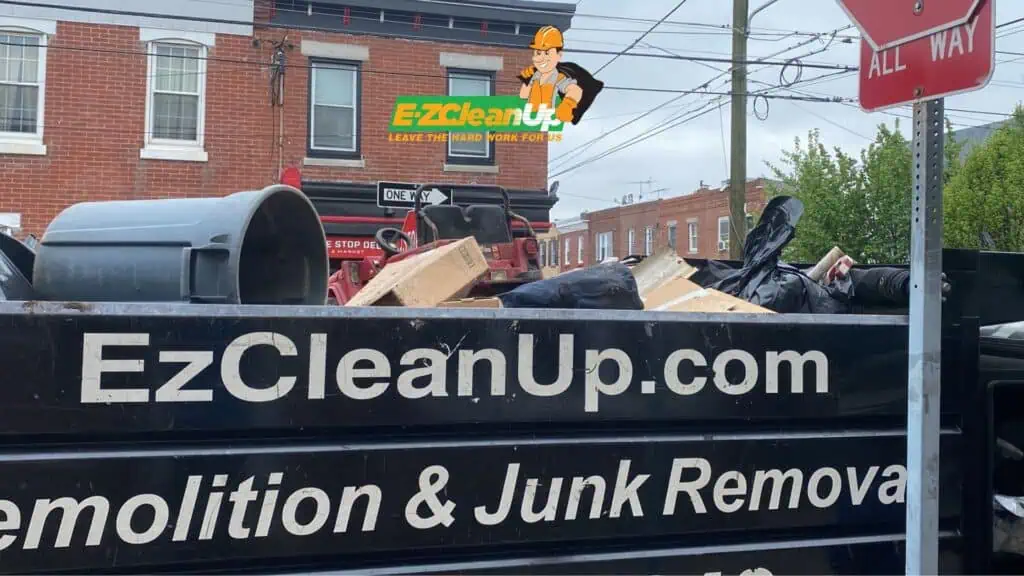
Parquet Flooring Clear-Outs Simplified
After mastering parquet flooring removal with the right techniques for different subfloors, the next step is dealing with the debris before you can prepare for a new installation. Here’s where EZ CleanUp can transform a difficult task into a hassle-free experience.
Our team excels at removing and disposing of construction debris. We make sure your space is perfectly prepped and clean for whatever comes next. For effortless clean-up and disposal solutions, reach out to us.

